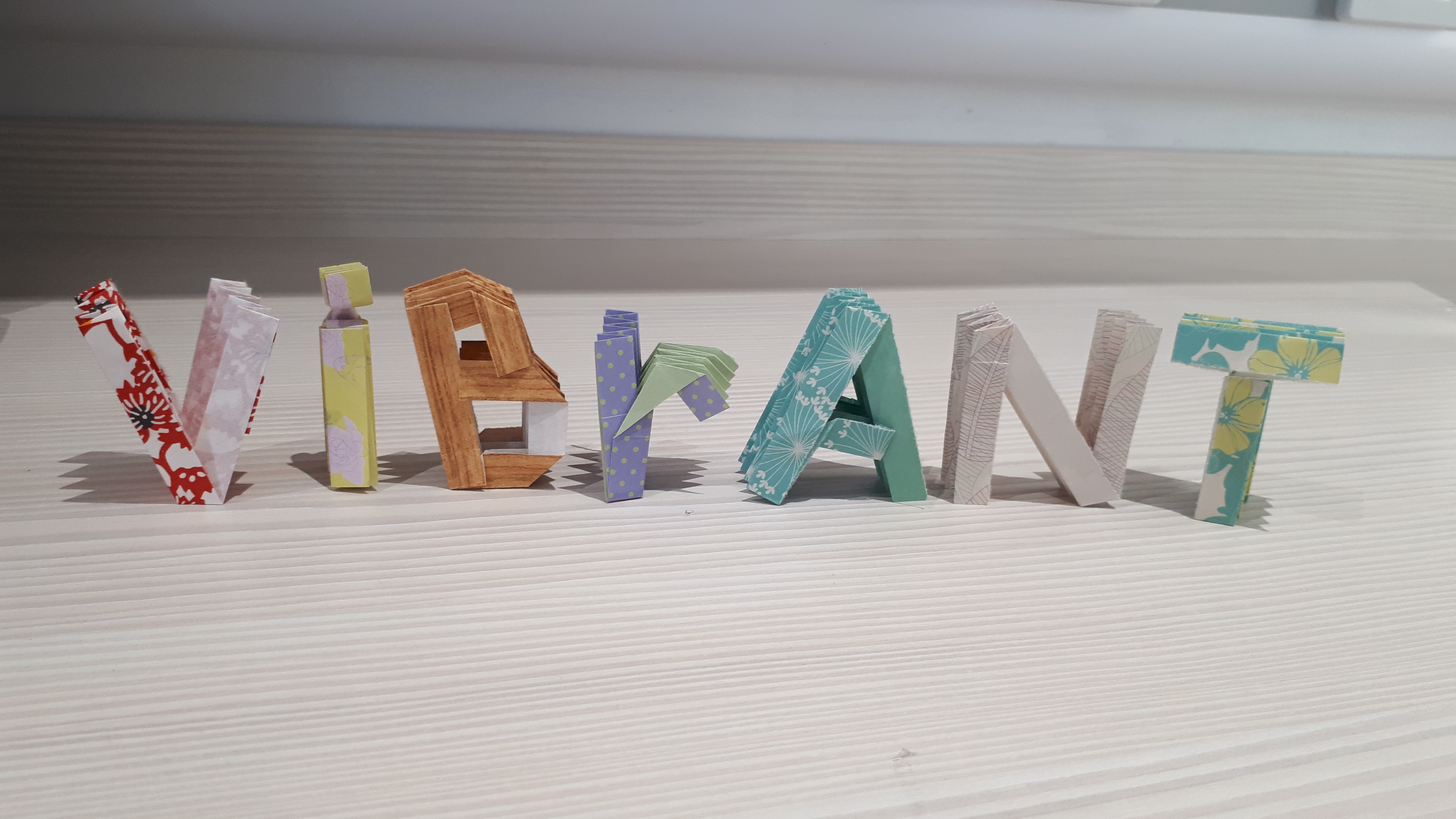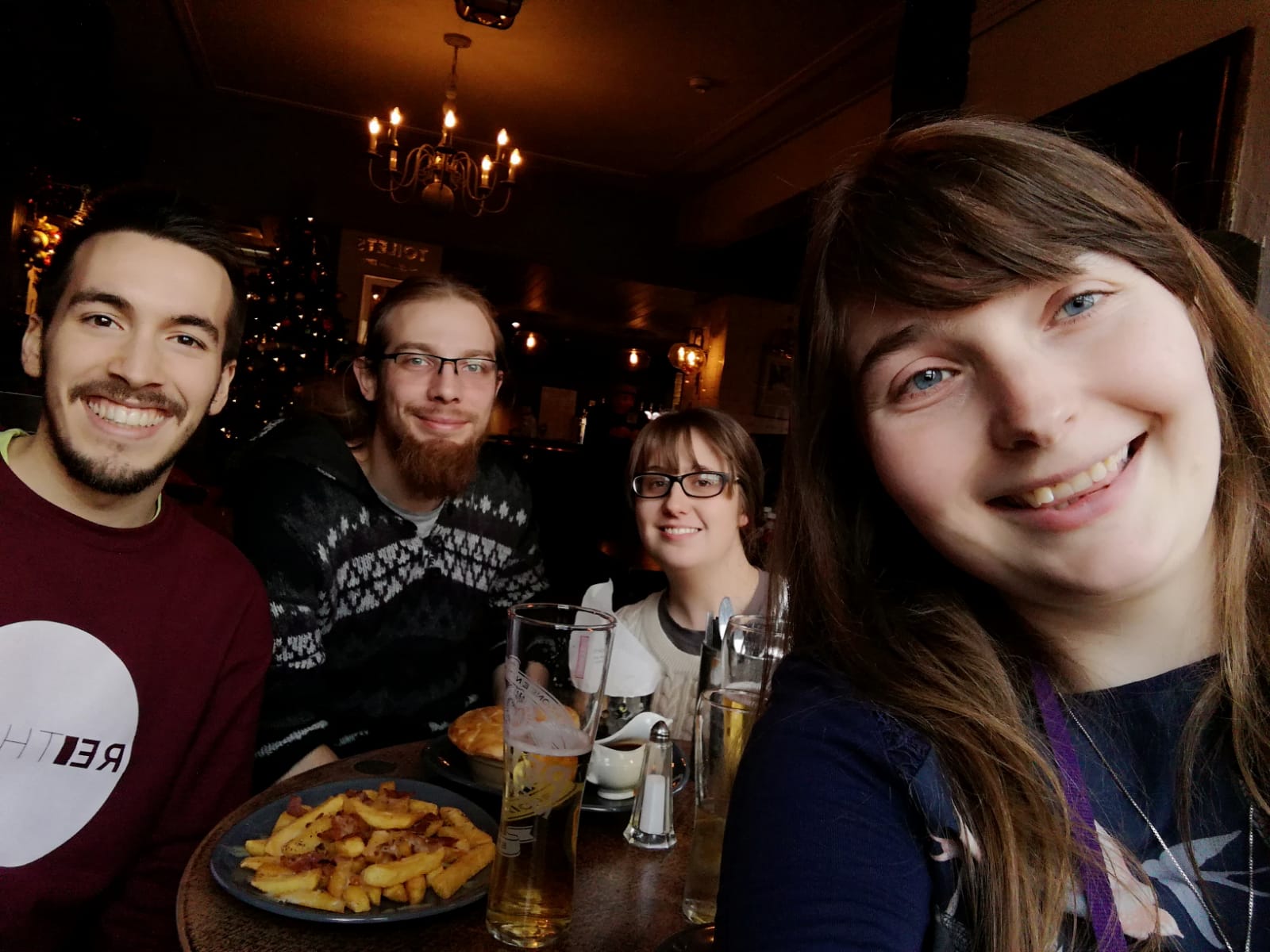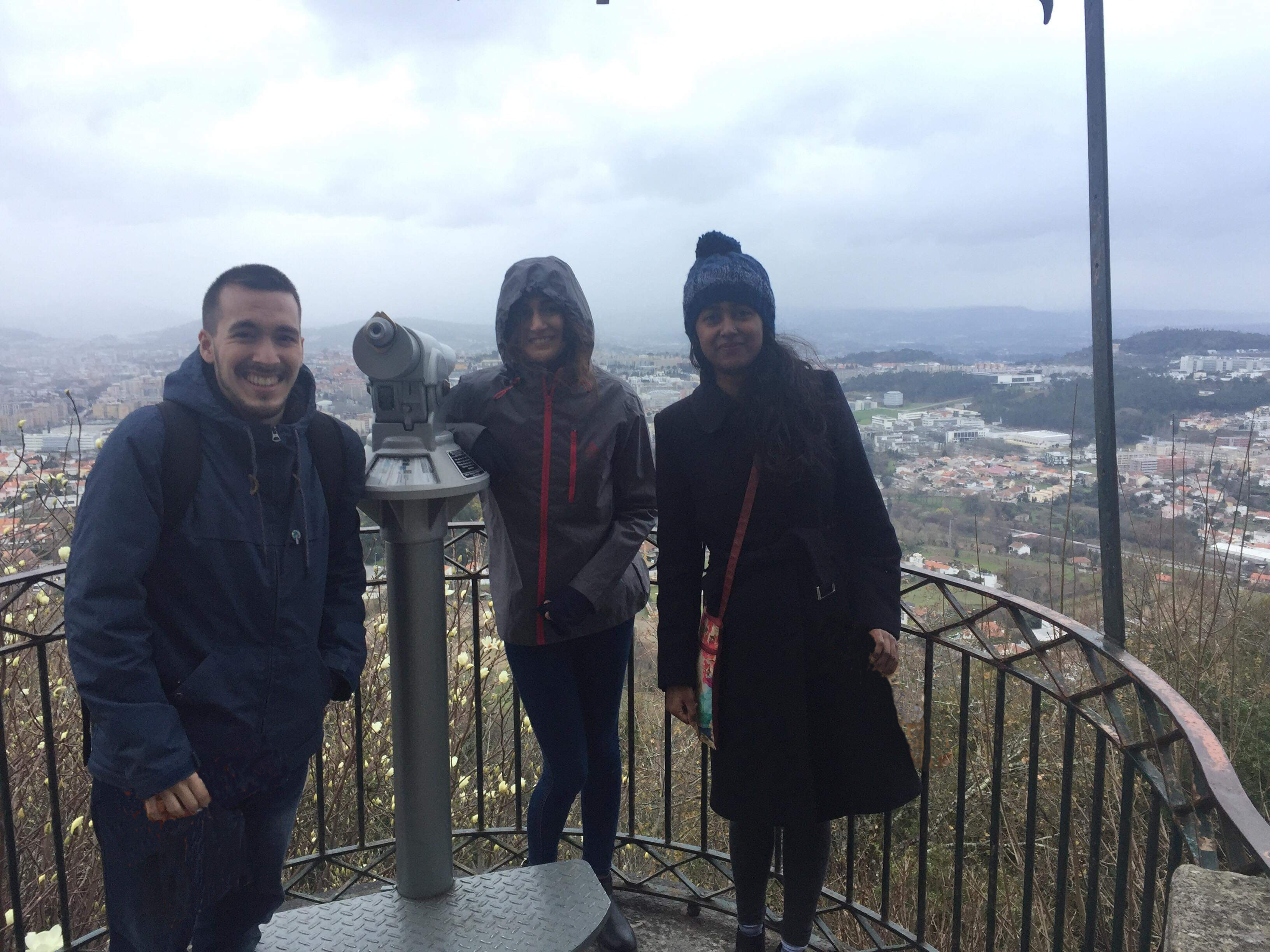Read this blog in:
Using microfluidics for pathogen analysis
Hello!
I’m Pablo Rodríguez, ESR14. I was born and raised in Cornellà de Llobregat city, 10 minutes away from Barcelona, Spain. I lived there until I moved to Hull, England, to start my PhD with ViBrANT in August 2018. I’m an origami lover and I enjoy listening and playing music, alone or with friends.

Origami ViBrANT

The lovely University of Hull
Unlike some of my amazing colleagues in the EU network, whose blogs I recommend reading, my PhD is not so focused on specific adhesion proteins of pathogens and structural biology, but on microfluidics and its applications towards pathogen analysis.
Microfluidics is an interdisciplinary field intersecting physics, engineering, chemistry and biology and is often called ‘Lab-on-a-Chip’ (LOC), as one of its main objectives is to shrink down conventional laboratory protocols in tiny chips of around a few square centimetres. In very small channels, micrometres in width and depth, some physical properties of fluids are different and very often takes place what is called ‘laminar flow’. In this type of flow, fluid behaviour is controllable and predictable. As a result of this and other advantages of using small volumes, many different applications have been drawn and this field has hugely increased in the last years.
When identifying pathogens from patient samples some of the problems usually faced are the long times needed, often a few days, the low concentration at which they can be present and the complex matrices of the samples in which the pathogens can be. My PhD has three main areas to explore using microfluidics: (1) isolate pathogens from complex samples, (2) miniaturize a molecular technique used to identify bacteria, and (3) help to understand how pathogens can adhere to surfaces or matrices by applying flow stress conditions.

With a few friends from the microfluidics lab

The Humberside bridge, connecting the East Riding of Yorkshire and North Lincolnshire
While writing this, I’m at the end of my first secondment at the University of Porto, Portugal. I have been here for the last 2 months learning a molecular technique to identify bacteria. The experience has been very enjoyable, I have learned loads of new things and met wonderful people!

Visiting Braga, a city 1h away from Porto, with Tugce and Maria (ESRs 8 and 9)



